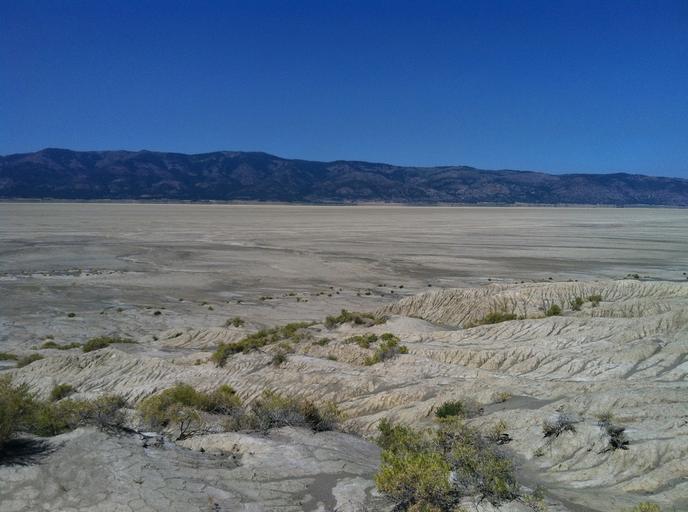MAKE A MEME
View Large Image

| View Original: | Real_Playa.jpg (1022x761) | |||
| Download: | Original | Medium | Small | Thumb |
| Courtesy of: | www.flickr.com | More Like This | ||
| Keywords: usgs science playa desert california geography water outdoor shore landscape seaside coast beach Real Playa — No, no, this isn't the name of the next rap hit from Drake, nor is it pronounced the same way, but for us it's an original playa. This playa photo is from Surprise Valley in California and, in the distance, you can see the Warner Mountain Range. So what's a playa? A playa is a dry, vegetation-free, flat area at the lowest part of an undrained desert basin. It is a location where ephemeral lakes form during wet periods, and is underlain by stratified clay, silt, and sand, and commonly, soluble salts. Playas occur in intermountain basins throughout the arid southwestern United States. Although playas may appear as featureless plains, they are rich in features and characteristics that can reveal information about climates, past and present. Many playas in the Mojave region were the location of lakes and marshes during the last glacial period. These perennial water bodies completely dried up about 8,000 years ago. Today they flood only after seasonal storms provide flash flood waters, or in some cases, springs discharge large quantities of groundwater onto the playa. Photo credit: Jonathan Glen, USGS. Real Playa — No, no, this isn't the name of the next rap hit from Drake, nor is it pronounced the same way, but for us it's an original playa. This playa photo is from Surprise Valley in California and, in the distance, you can see the Warner Mountain Range. So what's a playa? A playa is a dry, vegetation-free, flat area at the lowest part of an undrained desert basin. It is a location where ephemeral lakes form during wet periods, and is underlain by stratified clay, silt, and sand, and commonly, soluble salts. Playas occur in intermountain basins throughout the arid southwestern United States. Although playas may appear as featureless plains, they are rich in features and characteristics that can reveal information about climates, past and present. Many playas in the Mojave region were the location of lakes and marshes during the last glacial period. These perennial water bodies completely dried up about 8,000 years ago. Today they flood only after seasonal storms provide flash flood waters, or in some cases, springs discharge large quantities of groundwater onto the playa. Photo credit: Jonathan Glen, USGS. | ||||